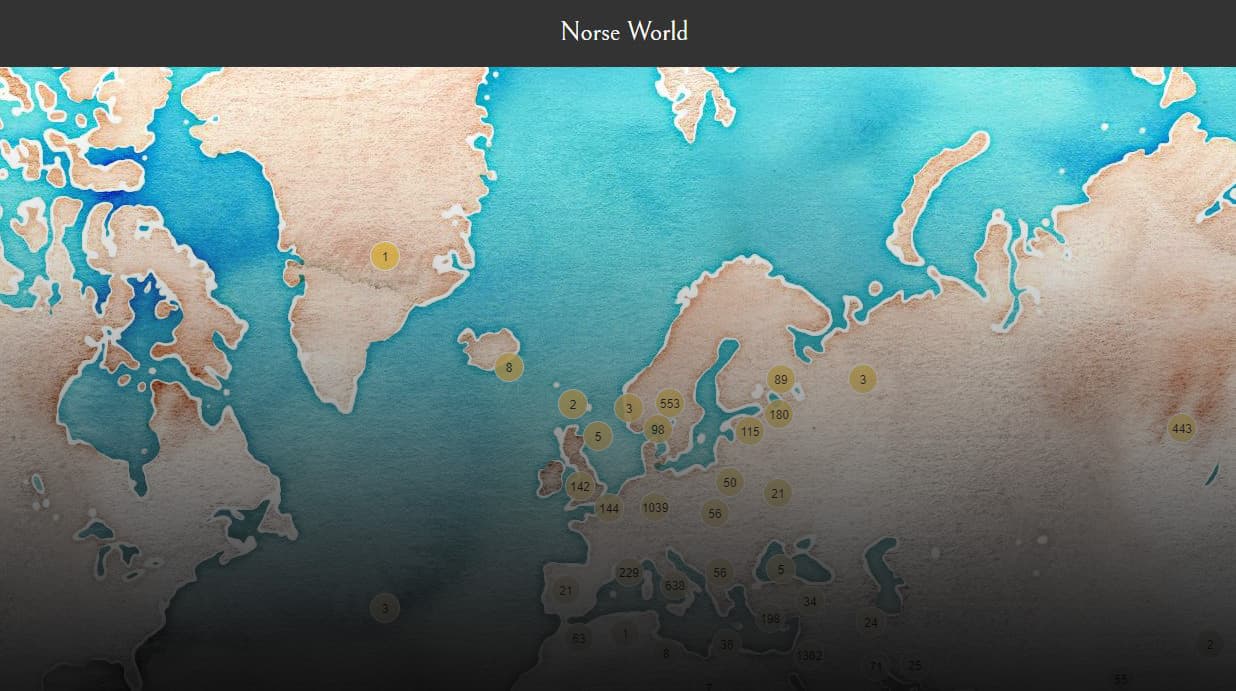Building and Linking Humanities' Digital Spatial Infrastructures
- Topics

This workshop covers key concepts in the field of (spatial) digital research infrastructures in the Humanities such as spatial infrastructures, Linked Open Data (LOD), metadata, ontology etc. It also outlines major challenges in the field and gives some concrete, authentic examples of how to overcome them in small and large-scale projects in both academia and the GLAM sector.
About this event
The project “Linking, Building and Sustaining Humanities Digital Spatial Infrastructures for Research in the Nordic Countries” aims to bring together humanities researchers and research engineers and others in related sectors (museums, archives, libraries) who are working on geocoded humanities data pertaining to the Nordic countries and beyond. The objectives are to:
(1) generate dialogue and exchange between relevant academic and non-academic sectors on the subject of spatial data and data infrastructures in the Humanities, and
(2) facilitate a collaborative initiative whereby common principles regarding ontologies and metadata will be mapped out by members of the network.
Collaborative data infrastructure solutions based on Linked Open Data (LOD) and FAIR data principles (Findable, Accessible, Interoperable, Reusable) will underpin and further advance Humanities research that builds on geocoded data.
The project is a new Nordic co-operation creating a network with a shared vision regarding geocoded humanities data and sustainability needs. In addition, the project positions Nordic participants and spatial data at the heart of a working group that aims to submit a European grant application under the Research Infrastructures call in the Horizon Europe Program for 2021-2027. Concrete results from the collaboration will be published in the form of reports and scientific papers.
In this first workshop, three issues were addressed:
(1) establishing common metadata principles and ontologies in Nordic Humanities digital spatial infrastructure for research;
(2) implementation of Linked Open Data principles to existing datasets curated by workshop organizers;
(3) work towards an EU grant application.
Keynote speakers and invited participants shared theoretical and practical experiences.
Keynote speakers
-
Marcus Smith “Linked Open Cultural Heritage Data: LOD and RDF in Theory and Practice”
-
Leif Isaksen “Keeping a Sense of Perspective: Spatial Data Infrastructures and the Humanities”
-
Ruth Mostern “The World Historical Gazetteer: Common Metadata Principles and Common Vocabularies and Ontologies”
Workshop Organisers
- Alexandra Petrulevich
- Sara Ellis Nilsson
- Lisa Vikström
- Peder Gammeltoft
- Emily Lethbridge
1.Linked Open Cultural Heritage Data: LOD and RDF in Theory and Practice
The talk addresses implementation of Linked Open Data in the Swedish cultural heritage sector with SOCH (Swedish Open Cultural Heritage) as its main example. Challenges of updating bespoke legacy solutions in order to achieve greater compatibility with overarching aggregators such as Europeana are also illuminated.
Presentation by Marcus Smith
2.Keeping a Sense of Perspective: Spatial Data Infrastructures and the Humanities
Leif Isaksen talks the listener through the issues of making SDIs out of often messy humanities data. Special attention is paid to data management, i.e. reliability, bias vs. flexibility, scope, and perspective. Examples are fetched from i.a. Greek and Egyptian materials.
Presentation by Leif Isaksen
3.The World Historical Gazetteer: Common Metadata Principles and Common Vocabularies and Ontologies
Ruth Mostern outlines humanities perspectives on place and place-making and how these can be operationalised in SRIs. The collaborative World Historical Gazetteer (WHG) project and its outputs serve as the main example. The talk focuses primarily on developing ontologies and vocabulary in a project setting e.g. Linked Places Format developed for the WHG.
Presentation by Ruth Mostern
